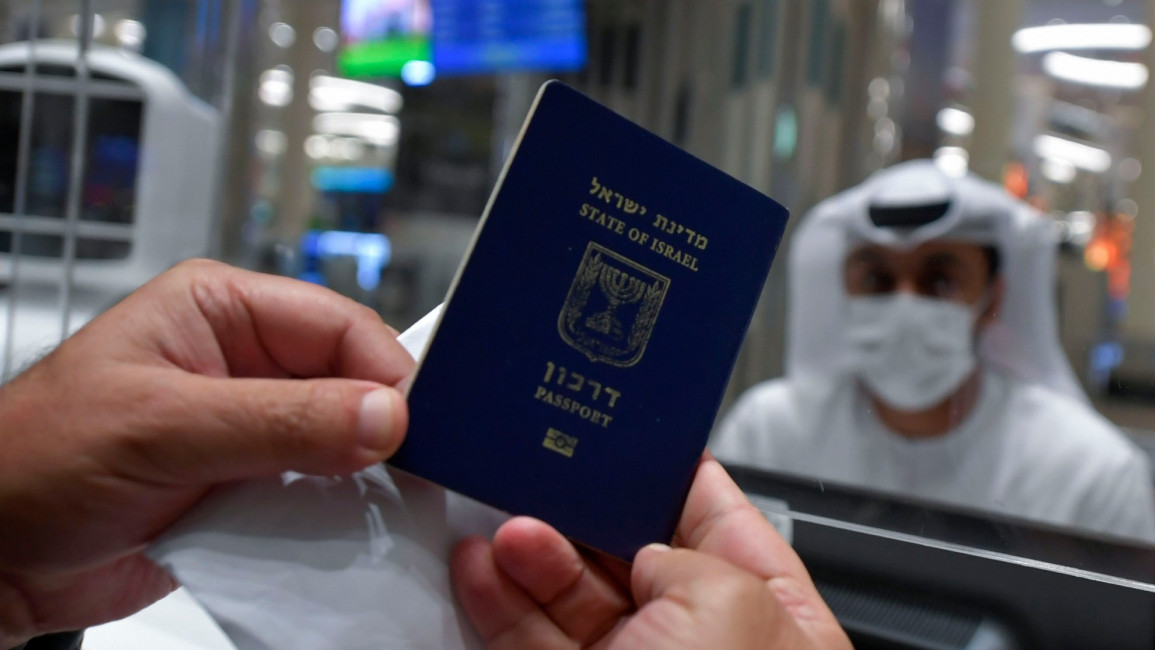UAE suspends visa waiver agreement with Israel
A statement from the Israeli foreign ministry said that the agreement would be suspended until 1 July.
"The UAE Ministry of Foreign Affairs has informed that according to the signed visa waiver agreement and in light of the efforts made to limit the spread of coronavirus, the visa waiver agreement will be suspended until July 1,” the statement said.
Israeli and Emirati citizens wishing to travel to the UAE and vice versa will need a visa.
The two countries signed a deal normalising relations on 15 September last year, and the visa waiver agreement was included in the deal. Since then, thousands of Israelis have travelled to the UAE.
Read more: Israeli criminals 'flee to Dubai' to escape arrest at home
Palestinians have condemned the normalisation agreement, saying it rewarded Israel while allowing it to continue its occupation of the West Bank and siege of Gaza.
The UAE’s announcement to suspend the visa waiver agreement came a few hours after the Israeli health ministry said that anyone arriving in Israel from the UAE would be quarantined at a military-run hotel for 10 to 12 days, due to coronavirus reasons.
Israel’s internal security service, the Shin Bet, has expressed concerns over the visa waiver deal with the UAE, saying it would not be able to check the background of Emirati citizens entering Israel.
Until the UAE announced it was suspending the visa waiver programme, its citizens were the only Arabs who could enter Israel without a visa.
Last November, after it signed the normalisation agreement with Israel, the UAE announced it would no longer issue visas to citizens of thirteen Muslim majority countries, including Iran, Pakistan, Syria, Lebanon, and Turkey.
It later characterised this as a temporary measure to fight coronavirus.
Follow us on Facebook, Twitter and Instagram to stay connected



